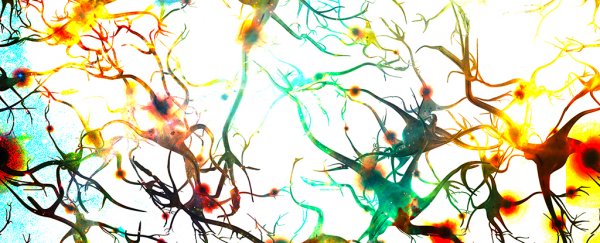People with a higher IQ are more likely to have fewer connections between the neurons in the outer layer of their brain, according to a recent study.
While previous research has suggested bigger brains are indeed smarter, a closer look at the microstructural architecture suggests it's not just a matter of more brain cells, as much as more efficiently connected ones.
An international team of neurologists used a non-invasive technique known as multi-shell diffusion tensor imaging to get an idea of the density and branching arrangements of the grey matter inside the heads of just under 260 volunteers.
Each subject also took a culturally fair complex reasoning test, producing a variety of scores ranging from 7 to 27 correct answers out of a possible 28.
Matching the imaging data with the test scores, the researchers found that those with higher analytical skills not only had more brain cells, they also tended to have fewer branches between the neurons in their cerebral cortex.
They then turned to a database of nearly 500 neural maps within the Human Connectome Project, and found the same pattern of higher IQ and lower interconnectivity.
At first this might seem counterintuitive. The old idiom 'more hands make light work' might apply to brain cells, but in this case those extra hands don't seem to be passing more information between them.
Previous research had shown that in spite of having more brain cells to share the heavy lifting, smarter brains don't tend to work as hard, displaying less metabolic activity when subjected to an IQ test compared with those who struggle to attain high scores.
This observation has led to the development of the neural efficiency hypothesis, which suggests the analytical power of groups of nerve cells isn't about pushing them harder, but about them being connected in a way that minimises effort.
"Intelligent brains are characterised by a slim but efficient network of their neurons," says neurologist Erhan Genç from Ruhr-University Bochum in Germany.
"This makes it possible to achieve a high level of thinking with the least possible neural activity."
Research on intelligence is often complicated by questions of definition and interpretations of IQ testing, so we need to refrain from generalising the results too far beyond the scope of the experiment.
Brains do a number of awesome things, with analytical reasoning making up just a part of its diverse cognitive skill set.
But understanding more about how individual units can interact to solve problems with maximum efficiency does more than show how brains function on a cellular level, they might point the way to improving technology that mimics them.
More research will no doubt help unravel the mystery of just how a streamlined nervous system does a better job at solving problems.
It might not help us all become geniuses, but it does show there's merit in working smarter, and not harder.
This researcher was published in Nature Communications.
